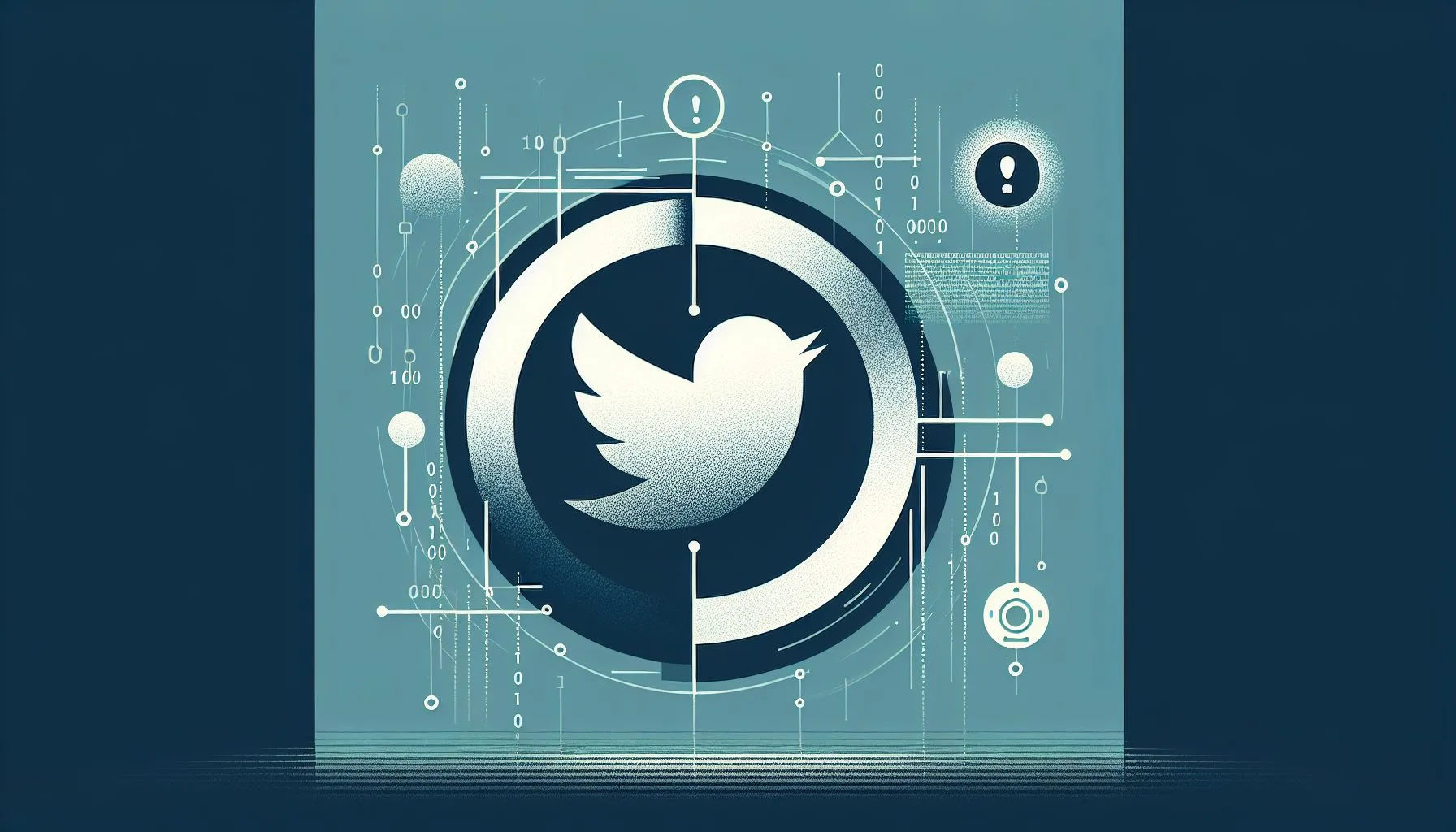Interesting Facts
Have you ever scrolled through Twitter and paused, squinting at a profile that just didn’t feel quite right? Maybe it’s an account claiming to be a celebrity or a public figure, but with subtle misses in the username, or a tone that seems off. These “fake Twitter accounts” have become an all-too-familiar part of our online landscape. But what exactly are they, and more importantly, are they illegal? Stepping into this topic means weaving through a complex tangle of identity, law, ethics, and the reality of digital life. Let’s pull apart these threads and see what we find.
Understanding What Constitutes a Fake Twitter Account
At its simplest, a fake Twitter account is one that pretends to be someone it isn’t. But the term “fake” can mean many things here. Not all fake accounts are trying to cause harm. Some are openly parody or fan accounts that sparkle with humor and a nod to the original person’s identity. Think of a comedian mimicking a politician on Twitter—an obvious joke for many, and often protected as free speech.
On the flip side, some fake profiles are crafted with darker intentions. They might impersonate a real person to trick others—perhaps to steal money, spread misinformation, or damage reputations. These are not harmless fun; they tread into unsettling territory. For more on the legal implications, see the article on whether creating a fake profile is a criminal act.
This distinction is vital because it shapes how we view these accounts legally and morally. While parody and satire often enjoy some legal protection, impersonation with intent to deceive walks a very different line.
The Legal Landscape Surrounding Fake Twitter Accounts
The question “Are fake Twitter accounts illegal?” doesn’t have a single, straightforward answer. The legality depends heavily on how the account is used, and where. Laws vary widely across countries, and outcomes are often based on details.
Consider identity theft. Many countries, including the United States, Canada, Australia, and members of the European Union, have laws criminalizing the deliberate theft and misuse of someone else’s identity. When fake Twitter accounts use photos, personal details, and mimic real people to deceive others, they can break these laws. For example, in the U.S., identity theft is a federal crime with potentially serious consequences. The Federal Trade Commission’s impersonation rule emphasizes this point.
Fraud is another key piece of the puzzle. Fake accounts designed to scam people into handing over money or sensitive information clearly cross into illegal territory. Fraud laws protect victims against such schemes, allowing law enforcement to intervene.
Then there are impersonation laws, which focus on pretending to be another person online, especially when this cause harm. These laws aim to prevent defamation, protect reputations, and discourage harassment. However, what counts as illegal impersonation isn’t uniform everywhere. Some places might take a broader view that includes parody if it causes confusion or damage, while others draw a sharper line. For an overview of legal protections related to social media impersonation, consider reading about social media impersonation.
Online harassment connected to fake accounts adds yet another legal layer. Using a fake profile to bully, stalk, or threaten someone can trigger anti-cyberbullying laws, which exist in many countries to protect internet users from abuse.
Twitter’s Own Rules and Enforcement
Beyond national laws, Twitter itself sets rules that govern what users can and cannot do. Twitter’s Terms of Service are clear: impersonation and false representation are prohibited when they mislead or deceive.
However, Twitter recognizes the value of parody, commentary, and fan pages. These accounts are often allowed so long as they identify themselves and don’t intend to mislead people maliciously. It’s a balancing act—encouraging creativity and humor, while guarding against manipulation and harm.
If an account crosses the line, Twitter can suspend or ban it. In some cases, when illegal activities are suspected, they may report users to law enforcement. Still, suspension remains the platform’s primary tool, which sometimes frustrates users wanting quicker or stricter action. You can learn more about Twitter’s authenticity rules directly from Twitter’s official authenticity policy.
Explore professional account management and secure transactions to enhance your social media presence. Visit our services page for expert support.
Challenges of Jurisdictional Differences
To add more complexity, laws around fake accounts vary widely across countries, creating real challenges in enforcement. The internet doesn’t respect national borders; a single account can be created in one nation but harm users worldwide.
Some countries have tough laws against impersonation and fraud online. Others place more emphasis on protecting free speech, allowing greater latitude for parody or satire. This leads to a patchwork of legal results and enforcement challenges—fake accounts may be deleted swiftly in one place but linger for months elsewhere.
This inconsistency leaves much responsibility to the users themselves. It highlights the importance of digital literacy and vigilance when interacting with accounts online. For more on dealing with fake profiles on social platforms like Twitter, see tips on what to do if someone is impersonating you on Twitter.
The Importance of User Awareness and Critical Thinking
When the law seems blurry or uneven, what can individual users do? A lot, actually. Growing your own awareness is one of the best defenses against falling prey to fake profiles.
Here are some practical tips:
- Look for the blue verification badge, a sign that Twitter has confirmed the person’s identity. You can obtain such badges or learn how they work at Twitter verification badge services.
- Pay attention to the account’s history and posting style. Are the tweets consistent with the known personality or organization?
- Check if other trusted sources or official websites point to this Twitter account.
- If something feels off—a sudden flurry of strange messages or requests—take extra care before trusting or interacting.
If you suspect an account is more than just a harmless parody—maybe used for fraud, harassment, or impersonation—reporting it to Twitter can help stem harm. Sometimes, contacting local law enforcement is necessary, especially if the fake account causes real damage.
Recent Developments and Emerging Trends
The battle against fake Twitter accounts isn’t standing still. In recent years, Twitter and regulators worldwide have stepped up measures to fight wrongdoing.
More rigorous verification methods are being explored to ensure users are who they claim to be. Policymakers debate the right balance between verification for safety and protecting privacy and freedom of expression.
The rise of sophisticated AI technologies and deepfakes adds a new dimension. Fake accounts today can produce believable photos, videos, and even voice clips that challenge our ability to tell what’s real. This technology puts pressure on lawmakers, platforms, and users alike to adapt quickly. For additional context on recent legislative responses, see this overview of 2024 legislation on deceptive media.
In some countries, politicians push for laws mandating tougher online identity checks and harsher penalties for misuse. Meanwhile, advocacy groups caution against sweeping policies that might hamper free speech or create exclusionary barriers.
Reflecting on the Human Side
Legal jargon and policy debates can make the issue seem abstract, but fake Twitter accounts have tangible human impacts.
Victims of harmful impersonation might endure damaged reputations, personal betrayals, or financial loss. Imagine waking up to find a stranger’s words attributed to you, or worse—friends and colleagues misled by a fake version of your persona.
At the same time, online culture thrives on satire and humor. Parody accounts can spark laughter, social commentary, and even promote important conversations. Distinguishing “harmful” from “harmless” is rarely black and white, urging us to approach the topic with empathy and nuance.
An Anecdote: When a Fake Account Crossed the Line
I once heard from a friend who discovered an eerily familiar Twitter account that seemed to be him. It started out as a joke—the account posted humorous takes on daily routines, clearly poking fun in a friendly way.
But things quickly shifted. The impersonator began reaching out to friends with suspicious links, asking for favors in his name. Confusion turned to concern as messages caused serious distrust among his circle.
He had to report the account to Twitter, warn his contacts, and eventually seek legal advice. The closure of the fake profile was a relief, but the episode left a lasting sense of vulnerability—the line between playful spoof and harmful deception can blur faster than expected.
Conclusion: Navigating the Fine Line Between Legality and Ethics
So, are fake Twitter accounts illegal? The answer depends on a tapestry of factors—intent, usage, law, and context. While many fake profiles exist harmlessly as fan pages or satire, those involved in identity theft, fraud, malicious impersonation, or abuse often trespass into illegal territory.
For users, awareness and skepticism are vital tools. Embracing digital literacy, scrutinizing what we encounter, and reporting suspicious activity help keep online spaces safer.
For lawmakers and platforms, ongoing dialogue is essential. New technologies and evolving social norms continually reshape what’s possible—and what’s acceptable.
Ultimately, the story of fake Twitter accounts isn’t just about law and rules. It reflects deeper questions about trust, authenticity, and responsibility in a digital age. By staying informed and thoughtful, each of us plays a part in shaping how online communities grow and heal.
What is considered a fake Twitter account?
A fake Twitter account is one that pretends to be someone else, either as a parody, fan page, or with the intent to deceive or commit fraud.
Are all fake Twitter accounts illegal?
No, only those used for fraud, identity theft, harassment, or other malicious purposes break laws. Parody and fan accounts are often allowed.
How does Twitter handle fake accounts?
Twitter prohibits impersonation and deceptive representation, allowing parody accounts if they identify themselves, and suspends accounts violating these rules.

